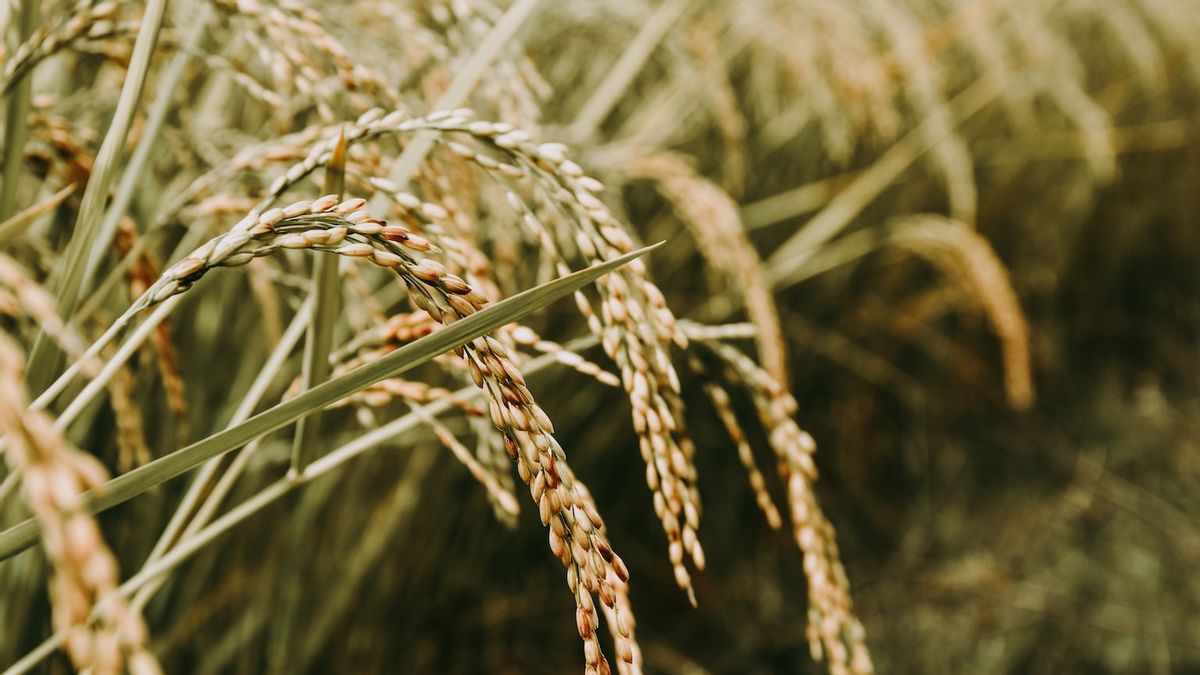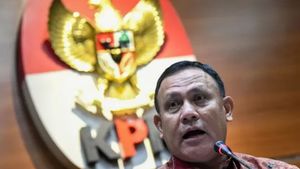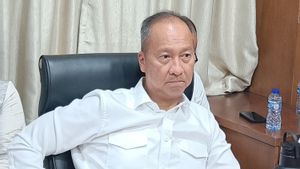JAKARTA - Chairman of the Indonesian House of Representatives, Puan Maharani, encourages the central and regional governments to control rice prices in the market, which are currently skyrocketing. He stressed that swift and appropriate action is needed to maintain the welfare of the Indonesian people in the midst of economic challenges.
"Cash is one of the staple foods in Indonesia, and the increase in rice prices can affect overall food prices which will have an increasingly impact on the community," said Puan, Wednesday, September 6.
From data from the Central Statistics Agency (BPS), it is known that as many as 86 cities experienced an increase in rice prices. This increase is also one of the contributors to inflation which was recorded year on year in August 2023 at 3.27%. The increase occurred due to an increase in the price of grain, both GKP (Treenfall Grant) and GKG (Gried Winding Grant).
In August 2023, the average price of premium quality rice in mills was IDR 11,754 thousand per kg based on BPS data. This means that there was an increase of 1.88 percent compared to the previous month. Meanwhile, medium quality rice in mills was IDR 11,475,000 per kg, an increase of 3.19 percent.
Puan also asked the local government (Pemda) to pay attention to other commodities that experienced price increases, such as cayenne pepper and red chili. With the right anticipation, it is hoped that the problem will not drag on as well as to prevent the price of other staples from rising prices.
"The government must ensure that market monitoring is active, involving price surveillance, stock, and rice availability in local and national markets. Accurate and real-time information is key in making the right decisions," said Puan.
"If other commodity prices also increase due to high rice prices in the market, of course this will make it even more difficult for the people, especially people from small economies. This must be prevented," added the former Coordinating Minister for Human Development and Culture.
On the other hand, Puan detailed other negative impacts that will occur if all basic needs increase. Such as increasing the cost of living for the community, especially middle and low income groups.
اقرأ أيضا:
"Especially for those who are low-income, this can be a big financial burden and make it difficult to meet basic needs such as food. They may have to reduce the consumption of other foodstuffs in order to accommodate the increase in rice prices," said Puan.
The increase in rice prices was also highlighted by President Joko Widodo (Jokowi) who requested that rice reserves be available at least 2 million tons by the end of the year to control rice prices. Even the Ministry of Trade (Kemendag) plans to import rice from India to anticipate reduced rice reserves in the country.
However, the import plan failed because India stopped rice exports abroad because the country was also experiencing rice stock problems. Puan also highlighted the importance of the Government overcoming the drought problem due to the long dry season because this natural phenomenon has threatened many agricultural land with crop failure.
"The large number of agricultural land that failed to harvest due to drought in this long dry season is one of the causes. We encourage the Government to strengthen the agricultural defense system in the middle of the dry season," he said.
Puan also emphasized the importance of synergy between Ministries and Institutions to create breakthroughs on the grounds of this issue. Both in social assistance to strengthening agricultural technology in order to anticipate the impact of crop failure which has an effect on rising rice prices.
"How can the State support the presence of technology so that farmers can still irrigate rice fields during the dry season. This step can be a solution and anticipate crop failure because during the dry season the difficulty of farmers is to irrigate their rice fields," said Puan.
Puan ensured that the DPR would oversee the rice price control program in the market. This includes efforts made by the Government to deal with long droughts that have an impact on agriculture.
"The government must also provide transparent information to the public about the actions that have been taken in the face of rising rice prices. This includes implemented plans and policies as well as steps taken to protect the welfare of the community," concluded Puan.
The English, Chinese, Japanese, Arabic, and French versions are automatically generated by the AI. So there may still be inaccuracies in translating, please always see Indonesian as our main language. (system supported by DigitalSiber.id)

















